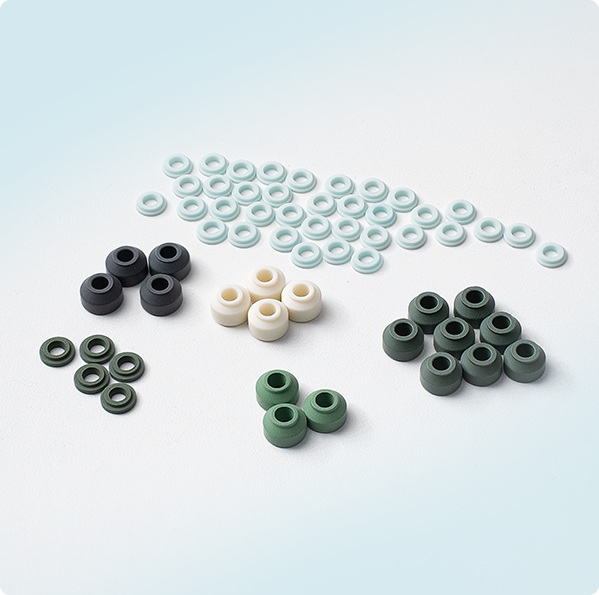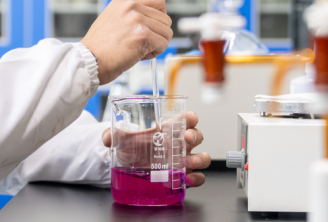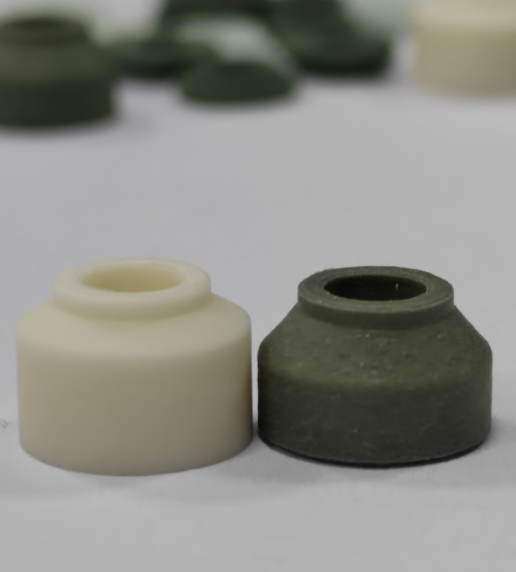
Steatite Ceramic Bead
Specifications and Performance Parameters |
||||||
| Application | Code | Ceramic Composition | Density g/cm3 |
bending strength | CTE/10-6(30-300℃) | Color |
| Connector structural component | CM083 | steatite ceramics | 2.85 | ~150MPa | 8.0±0.5 | White, light blue, green, grey |
The Application Areas of Products
-

AC Compressor Terminal
-

HVAC Compressor Terminals
-

Fridge Compressor Terminals
-

Optimized Formula
Spcera's steatite ceramic boasts an optimized formula designed to minimize shrinkage during high-temperature sintering. This ensures the material maintains high dimensional accuracy, making it ideal for applications that demand precise fit and performance. The advanced formulation helps in creating consistent and reliable components, reducing the risk of defects and ensuring compatibility with complex designs.
-

Mechanical Strength
Built to withstand extreme conditions, our steatite ceramic features exceptional compressive and flexural strength. This mechanical robustness translates into enhanced durability and reliability, even under significant mechanical stress. Whether in high-pressure environments or under continuous operational loads, our steatite ceramic maintains its integrity, providing long-lasting performance that meets the demands of industrial applications.
-

Chemical Stability
Our steatite ceramic is engineered to resist a wide range of corrosive substances, including acids, alkalis, and other harsh chemicals. This chemical stability ensures that the ceramic remains unaffected by aggressive environments, making it a preferred choice for industries where chemical exposure is a concern. Its resilience to chemical attacks extends the lifespan of the components, reducing maintenance needs and operational disruptions.
-

Thermal Resistance
Our steatite ceramic is designed to excel in high-temperature environments, maintaining its structural integrity and stability even under prolonged heat exposure. With a low thermal expansion coefficient, it resists deformation, cracking, or other heat-induced issues. This thermal resistance makes it ideal for applications where temperature fluctuations are common, ensuring that the ceramic performs reliably without compromising its mechanical properties.

We Specialize in:
Ceramic Steatite Insulator
-

Composition and Structure
Steatite ceramic, also known as magnesium silicate, is a material composed primarily of magnesium oxide (MgO) and silicon dioxide (SiO2). This unique combination of minerals gives steatite its remarkable properties, such as high electrical insulation, mechanical strength, and thermal stability. The crystalline structure of steatite is dense and tightly packed, which contributes to its durability and resistance to various environmental factors.
-

High-Temperature Sintering Process
The production of steatite ceramic involves a high-temperature sintering process, where the material is heated to temperatures exceeding 1200°C. During sintering, the particles of the raw materials fuse together, reducing porosity and increasing the material's density. This process is crucial in achieving the exceptional dimensional accuracy and mechanical properties that steatite ceramic is known for.
-

Thermal and Electrical Properties
One of the standout features of steatite ceramic is its low thermal expansion coefficient, which means it can withstand rapid temperature changes without cracking or warping. This property makes it ideal for use in high-temperature environments. Additionally, steatite has excellent electrical insulation properties, with a high dielectric strength that prevents electrical current from passing through it, making it perfect for insulating electrical components.
-

Chemical Resistance and Stability
Steatite ceramic is chemically inert, which means it does not react with acids, alkalis, or other corrosive substances.
Mechanical Strength and Durability
The dense crystalline structure of steatite ceramic gives it high compressive and flexural strength, allowing it to withstand significant mechanical stress.

Product







